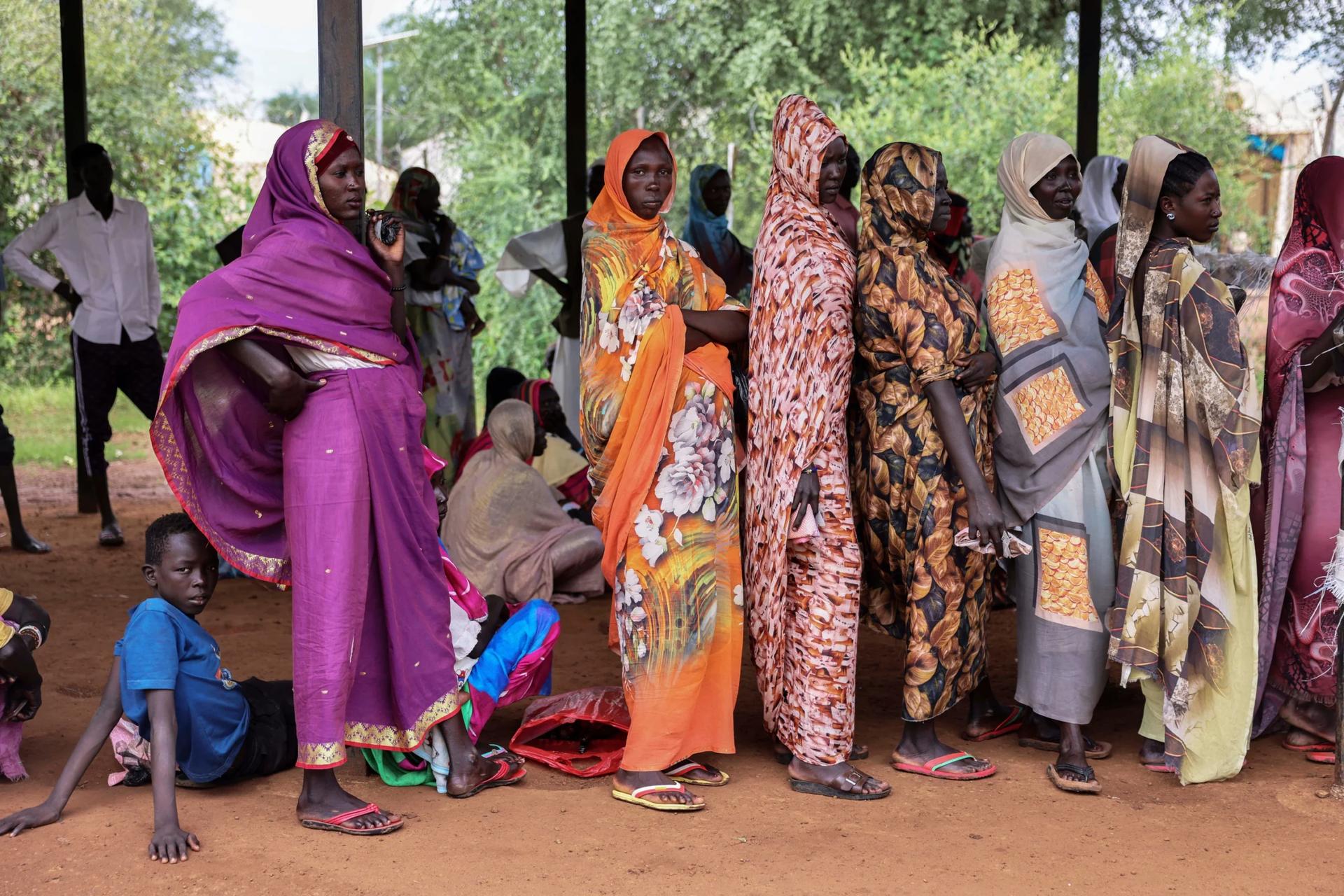Father John Gbembeyo of South Sudan has joined Catholic Bishops in warning of severe consequences if the United Nations reduce its presence in the conflict-ridden nation.
The South Sudanese government is demanding the United Nations drastically scale back its peacekeeping mission in the country, including withdrawing 70 percent of its international peacekeeping forces.
Gbembeyo is the Pastoral and Social Communication Coordinator in the Sudan/South Sudan’s Catholic Bishops’ Conference, and he told Crux that downsizing would leave internally displaced persons vulnerable, diminish accountability for human rights abuses, reduce essential support and employment opportunities, and jeopardize the already precarious peace implementation process.
“With the downsizing of the UN staff and the eventual closure of some stations which have provided safety for the internally displaced persons, anything can happen to the people left with no protection,” the priest said.
In a November 11 statement, the Under-Secretary-General for UN Peace Operations, Jean-Pierre Lacroix delivered a grim assessment of the situation in South Sudan.
“The humanitarian situation remains catastrophic. More than 7.5 million people face acute food insecurity; 28,000 are at risk of famine,” he told the UN Security Council. It is a situation made worse by flooding and the influx of refugees.
Despite all of this, Lacroix nevertheless announced that the UN has been forced to implement a “contingency plan” of downsizing due to a liquidity crisis.
He said the plan “applied across all UN peacekeeping operations to address liquidity challenges, is now being implemented in UNMISS.”
Gbemboyo has urged caution, highlighting the potentially devastating impact on a nation still struggling to establish lasting stability.
“The UN downsizing in South Sudan has many implications for the country and people of South Sudan,” the priest said.
“First, the presence of the UN in South Sudan makes the people believe that they belong to a world community and thus the UN offers oversight on the political, socio-economic and security issues affecting the people,” he told Crux.
“The downsizing is reducing the possibility for accountability on human rights abuses to the people the UN is leaving behind in those areas. The provisions of essential support for living; job opportunities for the communities have diminished. Above all, the process of peace implementation seems to be in limbo,” Gbemboyo said.
Catholic Bishops in Sudan and South Sudan have also weighed into the situation, saying they were disturbed at the move, and warned that the measures will have “serious implications and consequences for peace in South Sudan.”
They appealed to UN members and partners “to continue supporting the people of South Sudan at this critical time.”
War, floods and the continued cycle of suffering
The bishops frontally addressed the unfolding security challenges facing both Sudan and South Sudan.
“We find ourselves deeply disturbed by the ongoing devastating conflicts and the dishonored peace agreements in both nations, especially with the worsening situation in 2025,” the bishops stated.
“It is alarming that dialogue is no longer seen as a vehicle for harmony, healing, reconciliation, and unity,” they emphasized.
They said they were disturbed that people-mostly South Sudanese who had sought refuge in Sudan were being forced to return.
“We are gravely concerned about the alarming forced returns of vulnerable women and men without due consideration for the welfare of their children and other dependent family members,” the bishops said.
They also took issue with the devastating floods that have rocked parts of the two countries of late. In South Sudan, deadly floods have also displaced more than 100,000 people.
“Many villages, farms, schools, health facilities and sources of livelihoods of the people have been submerged. We are hereby appealing for special attention and publicity of this natural disaster and establishment of its cause and remedies,” the bishops said.
Obstacles to peace
Gbemboyo told Crux that obstacles to peace in the country began with lack of political will from the principal parties to the peace agreement.
“This lack of political will has shown itself in the leaders holding to their political and military camps leading their followers away from the Revitalized-Agreement on Resolution of the Conflict in South Sudan,” the priest said. “These actions by the parties have created more conflicts and insecurity in most areas.”
He urged the conflict parties to have human hearts to return to the peace agreement” in order to save the country from further escalations.”
South Sudan, a nation of 12.7 million people gained independence from Sudan in 2011. Ever since, either nation has enjoyed peace as the tussle for power becomes much more deadly.















